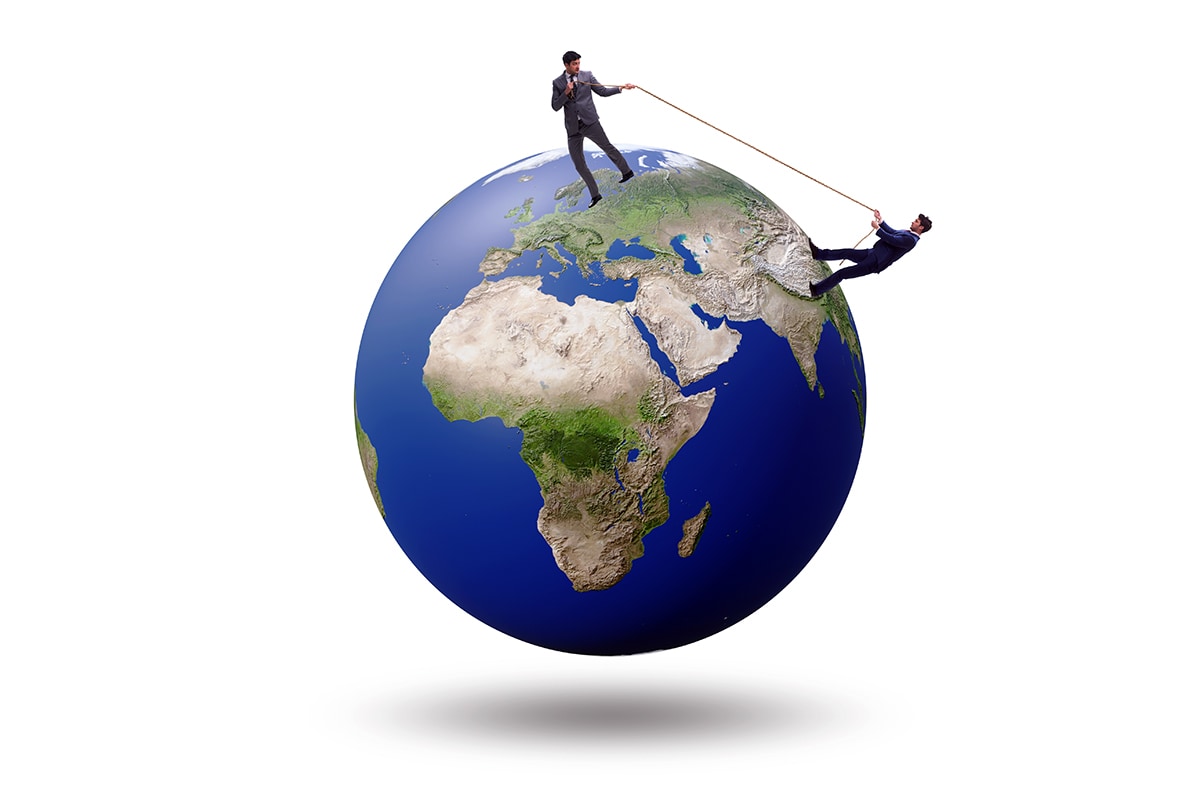 It is evident that the current form of nationalisation cannot stand up to the challenges posed by globalisation.
It is evident that the current form of nationalisation cannot stand up to the challenges posed by globalisation.
Image: Shutterstock
The United States presidential results are recently out with Donald Trump, with his nationalist slogan “Make America Great Again” emerging as the clear winner. In Argentina, one of Trump’s biggest admirers, Javier Milei, defeated his opponent, Sergio Massa, with 55.7 percent of the vote, the highest percentage since Argentina’s transition to democracy. Elsewhere in The Netherlands, one of the biggest political upsets in Dutch politics since World War II, the nationalist Party for Freedom, led by Geert Wilders, won 37 seats in the 150-seat House of Representatives, becoming the largest party for the first time. Earlier in 2022, the Italian general election brought into power the coalition led by Giorgia Meloni’s Brothers of Italy, a nationalist political party. At home too, Prime Minister Modi, leading a coalition government for the first time in his political career, emphasised that the policies of his government are not due to any political compulsions but are targeted towards fulfilling this goal and based on the idea of ‘Nation First’. The importance of nation-building is evident in the independence speech by the Prime Minister. A textual analysis of his speech revealed that he pronounced the term’ nation’ fifty-five times. Thus, a discussion on the concept of the nation is worth considering. What is a nation? What is the role of the government in nation-building? Will the rise of a powerful nation result in a xenophobic group of people who are interested in protecting their needs at the cost of minorities?
In her excellent treatise on the birth of nationalism in India, The Promise of Power: The Origins of Democracy in India and Autocracy in Pakistan, Maya Tudor (2017) defines nationalism as a “collective force among people inhabiting a distinct territory and sharing common history and culture to have a distinct identity”. We do have a common history. However, we do not share the same language, religion, customs, culture and other characteristics that help it bind its members to a nation. Indian nationalism can be compared to a Russian doll where within the envelope of the bigger doll are other smaller dolls or separate smaller nations. In this non-homogeneous nationality, I examine a force that can threaten India’s nationalism.
Globalisation is a potent force that can divide India’s nationalism. In his much-cited book, ‘The World Is Flat’, Thomas Friedman argues that the current era of globalisation, which he names Globalization 3.0, differs from its earlier avatars. The characteristic feature of Globalization 1.0 was that countries were globalising (the birth of colonies by the European countries), and Globalization 2.0 was about companies globalising (the emergence of the modern Western MNCs). In contrast, Globalization 3.0 is characterised by the new-found power of the individuals globalising. Location, an important characteristic in Globalization 1.0 & 2.0, became unimportant in the latest avatar. A person could be connected to the world, whether in Kolkata or California. However, Friedman overlooked the challenges one needs to overcome to connect to the globalised world.
Globalisation does not respect national boundaries, and hence, the benefits of nationalism are of little use. National public education, which was the centre of nation-building, caring for the national heritage, enhancing national identity and strengthening bonds of brotherhood among the members, became the major victim of globalisation. There was no need to know about national heroes, today’s heroes are global. Privileged kids of today can link their iPhones and know more about Sundar Pichai or Elon Musk than Dr Varghese Kurien, the father of the white revolution. English and Mandarin, in the future, are likely to be the global language rather than our national language or any regional language. Unable to fulfil its basic need of providing education that helps children cope with the challenges of Globalization 3.0, national public education became a divisive force. The rich shifted their children to elite private schools, where there is an increasing demand to introduce a global curriculum rather than a national one. The less privileged are forced to stay in national schools and are equipped with knowledge that has limited value in Globalization 3.0. Less privileged parents recognise that although their children may be better educated than them, they are, in fact, poorer. In a recent report on financial security by CNBC, 42.8 percent of the people feel that their income, in real terms, is worse off than their parents, while another 20.7 percent feel that their income has remained the same as their parents’. This is distressing because compared to 1980, 50 percent of people grew up earning more than their parents did.
Also read: How segregation shapes our views on inequality
[This article has been published with permission from IIM Calcutta. www.iimcal.ac.in Views expressed are personal.]
